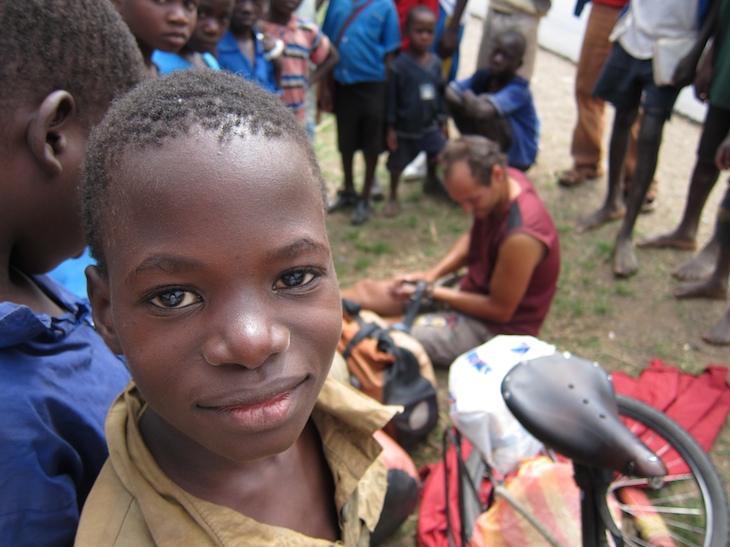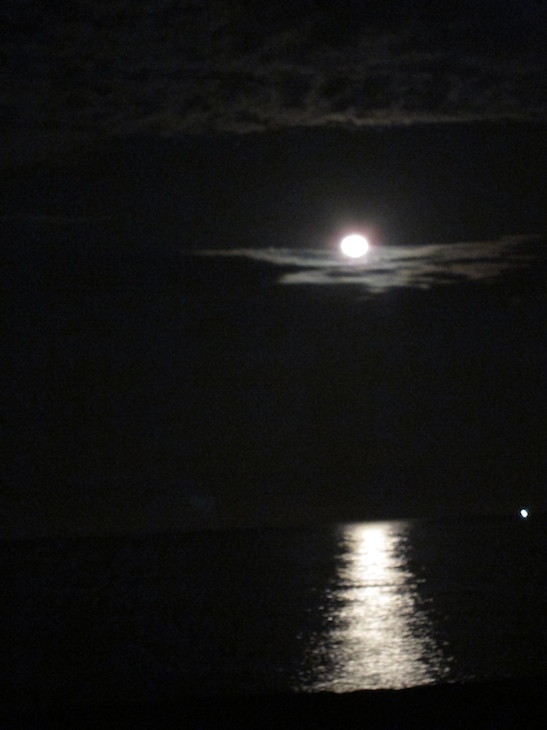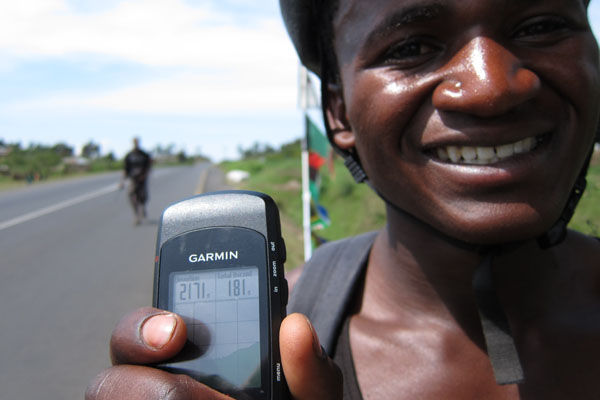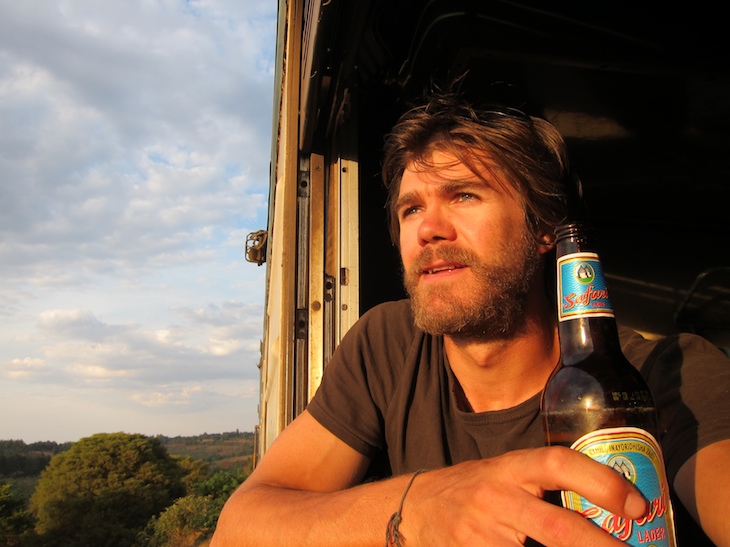Beyond the Bike
Stage 6: A hitchhiker's guide to Northern Malawi & Southern Tanzania...
Stage 6: Nkhata Bay to Mbeya, 430km. October 13th - 19th
"It is by riding a bicycle that you learn the contours of a country best, since you have to sweat up the hills and coast down them. You have no such accurate remembrance of a country you have driven through" If Hemingway was describing how best to understand the physical geography of a land, what better way to understand its people than by offering them a lift on your very own bicycle taxi...
After Nkhata bay in Northern Malawi, where I said goodbye to Doctor Liv, I had no stokers organised until near Dar-es-Saleem, some 1000km further into my journey. I was going to break the journey with a detour back to Zambia to join Cranleigh School's second trip to Kawama school at the end of October. I therefore set off towards the Tanzanian border in good spirits, some 300km north of Nkhata Bay, knowing I would be amongst familiar faces 10 days later.
My first stoker, George Shumay, wasn't exactly local, rather a 40 year old American traveller in between jobs back in Europe. He was staying in the next door hut at Mayoka Village, Nkhata Bay and immediately seized on my loose offer a ride to Mzuzu, having enjoyed a cycle tour over the summer around France. The spontaneity of his decision and his interesting company the next day helped to reinforce my decision to do the trip on Thandie! We set off at 6am in an attempt to beat the heat - although only 50kms from Nkhata bay, it involved nearly 1000m of vertical ascent which wouldn't have been much fun at midday. We passed the 4000km mark at the top of one of the hills and I also enjoyed a stink stoking myself, once George got the hang of handling the heavy load.
I spent the day catching up on emails and other trip admin. In return for a lift home & buying one of his bracelets, a local artist named Pumpkin helped me find a decent FX rate, some petrol for the stove & and some local food. I later learnt from my hosts that night that he was well known around town for being a bit of a nuisance when drunk. I guess I must have caught him sober as he was genuinely helpful and didn't demand any money for his services. In the early evening, I hooked up with Jeremie & Claire (J&C), the French cycling musicians that I had met earlier in Malawi. We stayed the night with a French-Canadian couchsurfing' couple, Pierre & Vicki, working at the local university that the Frenchies had organised to overnight with. That night it poured, my first rain since July 16th the day before I flew from the UK, nearly 3 months before!

Jeremie mends a pucture as a crowd gathers
After a long 130km day up and over the Livingstonia escarpment, we camped the night on the lakeshore just beneath Livingstonia. The small town is named after the Scottish missionary whose work in this region had done much to end the vicious slave trade that had plagued local people throughout the 19th century. The following day, we watched France beat Wales in the first semi-final of the Rugby World Cup in a ramshackle house in the village, with the TV powered by a car battery. J& C would be heading up to Livingstonia whilst I travelled solo towards the border. It was sad to say goodbye to them but we planned to meet on the Tanzanian coast in a month as we took different routes to Dar es Saleem.


Dominic Moonrise over the lake
Starting in the middle of the day, I only managed 50kms, solo for 49km, helped up the last hill by Dominic, an 18 year old whose English didn't stretch much beyond telling me his name. At 50km, I chanced upon a campsite run by a dutch couple Jan & Floja. They were using it to help finance an orphanage & agricultural training centre that they had started a few years ago. I joined them for a beer and we discussed the most effective way charities & NGO could help in this region. We agreed that any model requires ownership of the project by locals, a model Beyond Ourselves, my main charity partner, was also adopting. I looked forward to cycling in the morning with their general manager Benson to find out what he thought. After cooking my standard rice & veggies, I witnessed a spectacular moonrise over the Tanzania mountains on the other side of the lake. Such was the power & colour of the moon, I initially mistook it for a forest fire as night descended!
Benson was in his forties, spoke excellent English and had enjoyed a good education thanks in part to being the son a of village chief. He had worked for the department of agriculture, trained as an accountant before joining forces with Jan & Floja. He explained to me about the local customs and agricutural techniques - Malawi is very fertile but maize yields are often only 1-2 tonnes per hectare compared to up to 10 in similarly fertile parts of the US, for example. He talked ambitiously yet realistically about the project they ran here. He was also fit so we rode the 40kms to Karonga in less than 2 hours. En route, the early morning light helped to magnify the beauty of the Komber Lagoon. It was difficult to imagine that this tranquil place had witnessed one of the most brutal massacres of the local & defence-less Nkondes in 1887, a side effect of the slave trade that Livingstone had fought to end.

Benson
I dropped Benson off in Karonga. Despite his apparent worldliness, he clearly rarely ventured into town as it took us 3 wrong turns to find the bus stop. We enjoyed a coke together and said goodbye as I continued north, with a plan to stop at a resort where I understood the RWC semi-final between New Zealand & Australia would be playing. I was overjoyed when I found it but being the only person watching it took away somewhat from the atmosphere. I reflected that the last time I had watched a live game at the same stadium in Christchurch: the Lions getting hammered in 2005 in horizontal freezing rain. Watching on a beach in far away Malawi didn't have the same atmosphere but it was least warmer. I re-entered the nearly 40 degrees heat after the game and headed north contently. The fuel crisis meant that there were very few vehicles so I enjoyed sharing the road with other cyclists & pedestrians going about their Sunday business.

I doubt 2011 Wallabies drive Utes...
Cycling past a well dressed man, carrying a book, I offered him a lift, sensing he might be interesting company. Alfred Matias was the local vicar, returning home from Church with his Bible. His English was sadly limited but he seemed grateful for his shorter journey as we stopped at his house, 2kms along the road. He lived with his 3 children, wife and mother in a 3 room house and warmly invited me inside so that I could eat my lunch in the shade. He wife was skilfully making wicker baskets for sale at the local market and we nodded and smiled to complement our limited ability to communicate. With only 20km to go the border, I pedalled off in good spirits, thinking positively about humanity, the kindness of strangers and how the common perception of Africa as a dangerous place full of poverty, disease and unpleasant characters was mis-guided, at least regarding the latter. An hour later I was being robbed at the border! Naively, I handed my Malawian Kwacha over too soon to a nimble money changer who then disappeared leaving me with a choice of giving chase or staying with my bike. I decided that my bike was more important.
I handed over another $50 to the official at the border for the visa, changed some money at a formal exchange and pedalled into my fourth country in a less positive mood. I loosely remembered that Rob Martineau, who had ridden the same route in 2010, had mentioned a nice campsite close to the border. Although I had 3 hours of sunlight, the incident at the border and made me less willing to camp on the side of the road. I found a campsite just 2 kms from the border and stopped to check it out. Alfred, the owner, greeted me. It seemed safe enough and the lack of other campers meant I could at least have a quiet night. In fact as I signed the visitors' book, it turned out that the last foreign tourist was Steve Forbes, a London doctor currently cycling around the world. He stay at the campsite on April 13th! Alfred forlornly acknowledged that business hadn't been so good recently and we spent the evening watching TV together and discussing strategies to improve his turnover. We concluded that his idea to turn the site into a school might be more effective!
Alfred also told me that the next 40 kms was relatively flat before getting hillier toward Mbeya, some 120kms north and from where I would take the train on Wednesday to Zambia. I had left myself a spare day to get to the train but his description of the route meant I could perhaps be there the following night. Alfred clearly hadn't cycled the route. 50 kms later and having climbed nearly 1500m of vertical, I was finished! Seeking refuge in the shade at about 10am, I stopped at a primary school, where I opportunistically gave a short talk to one of the classes on the request of one of the teachers. sixty 10-14 years olds listened with wide eyes as Edward translated a few sentences about my journey into Swahili. I arrived in the main town of the region Tukuyu seeking some food for dinner and attempted to find somewhere to rest. Struggling to find somewhere to lean the bike to get into a shop, I was helped by the local Bob Marley look-a-like. Coincidentally, he was a musician at a local community campsite called Bongo campsite. It transpired that this was the aforementioned camping spot that Rob had referred to: 'More like a field than a campsite but a nice place to sleep' were his exact words on re-reading his email. I offered the Bob Marley look-a-like Job Mpelezi a lift home in return for showing me the way. We bought some food for dinner en route and 20 minutes later I was resting in the shade, content in the knowledge that I had a safe place to sleep.


60 kids listen attentively... Job: A musician but not a cyclist
The campsite was run by a group of enterprising young Tanzanians including Job, who were also passionate about their music. I listened to them rehearsing as I cooked my dinner before getting an early night. I would be trying to beat the heat in the morning, with one of the local farmers, Gibonce joining me on the back. Although he didn't speak much English, he informed me that he had ridden his single speed local bike the 500kms to Iringa in 4 days. It was enough for me and I promised to pay his bus fare home from Mbeya if he pedalled hard!
Gibonce was 22 years old, hadn't completed school ('fee problems') and lived with his grandmother. His parents were in Lusaka with his sisters, apparently disowning him when he was 13, the reasons for which he either couldn't explain or didn't want to. As such, he made a living as a subsistence farmer, growing sugar cane, bananas & maize, selling any surplus locally. He really wanted to be a 'tour guide' hence his keenness to show me around. A tour guide was something that many of the young men and children that I met in Tanzania aspired to becoming. I politely suggested that he should work hard on his English if he wanted to realise his dream. He also asked me if I had a sister. Yes, I said but following up quickly that she was happily married, predicting his next comment: 'Me, I want to marry a white woman'. "Why?", I asked. "Me, I'm an international man". He told me his brother had married a white South African and clearly liked the idea too.
We passed the highest point on the road at around 2200m and after 4 big hills, enjoyed a 70km/h descent to Mbeya, the main hub town of the region. We headed straight for the railway station where i ventured into the communist style building (it was built with Chinese help in the 1970s), where I managed to purchased a first class ticket to Zambia for about $25. Returning outside, I found Gibonce chatting to a couple of locals. They turned out to be plain clothed policemen, assuming their ID was genuine. Offering to escort me to the immigration department, where they told me I would need to buy a visa. I politely declined, thanking them with a smile before pedalling off with Gibonce. "were they real policemen?", I asked him. He wasn't sure. We eventually found the relevant government building where I hoped to get a visa for Zambia. It turned out I could get one on the train. Perhaps they weren't policeman after all. I said goodbye to Gibonce, thanking him for his strong pedalling and safe escort to Mbeya and handed over 5000 shillings (c 3 USD) for his bus fare.

Gibonce near the highest point of our ride that day...
Jodie from Beyond Ourselves had kindly sorted a place for me to stay and leave Thandie through a contact of her's at Grassroots, an educational charity based in Mbeya. Pastor Kenneth from Grassroots showed me around for the afternoon and we visited 3 schools, all facing the same challenging circumstances that I had seen across the Southern Africa region. A policeman was standing guard at Forest Secondary School to ensure none of students got a sneak preview of the exam papers in the storeroom. Good use of policetime, I thought to myself!? The head teacher Cecilia told me that she had 14 colleages to deal with the 982 students. "Did they teach economics or business?", I asked, thinking I could talk to the students about my 'economic cycle' on my return in two weeks. "No economics or business studies teachers here", she replied.
Kenneth wanted to show me around 3 other schools. Having been up since 5am and flagging, I declined and headed back to the hostel for a rest. I packed for the following morning, shared dinner with an interesting white Jamacian from Canada (he referred to himself as being 'kinda Heinz, 57 varieties') who was working for a language charity. I learnt that there are over 120 languages in Tananzia alone and the government ruling that schools must teach in only Swahili and English for primary and secondary education respectively caused problems for students whose first language was neither.

A bishop on the train told me I look like Jesus. I've been called worse things...
I retired to bed, looking forward to getting on the train and back to Zambia. Cycling solo was arguably more rewarding. You are forced to meet more people and learn to look after yourself but it is also harder work with the ups and downs, both physically and mentally, more pronounced. The train the following day left on time and arrived only 6 hours late. I ended up sharing a carriage with a Zambian Bishop who likened my physical appearance to Jesus Christ. Time for a shave, I thought to myself, a message echoed to me by my youngnieces back in the UK. What do you think - take a look at my latest video...!
When you subscribe to the blog, we will send you an e-mail when there are new updates on the site so you wouldn't miss them.

